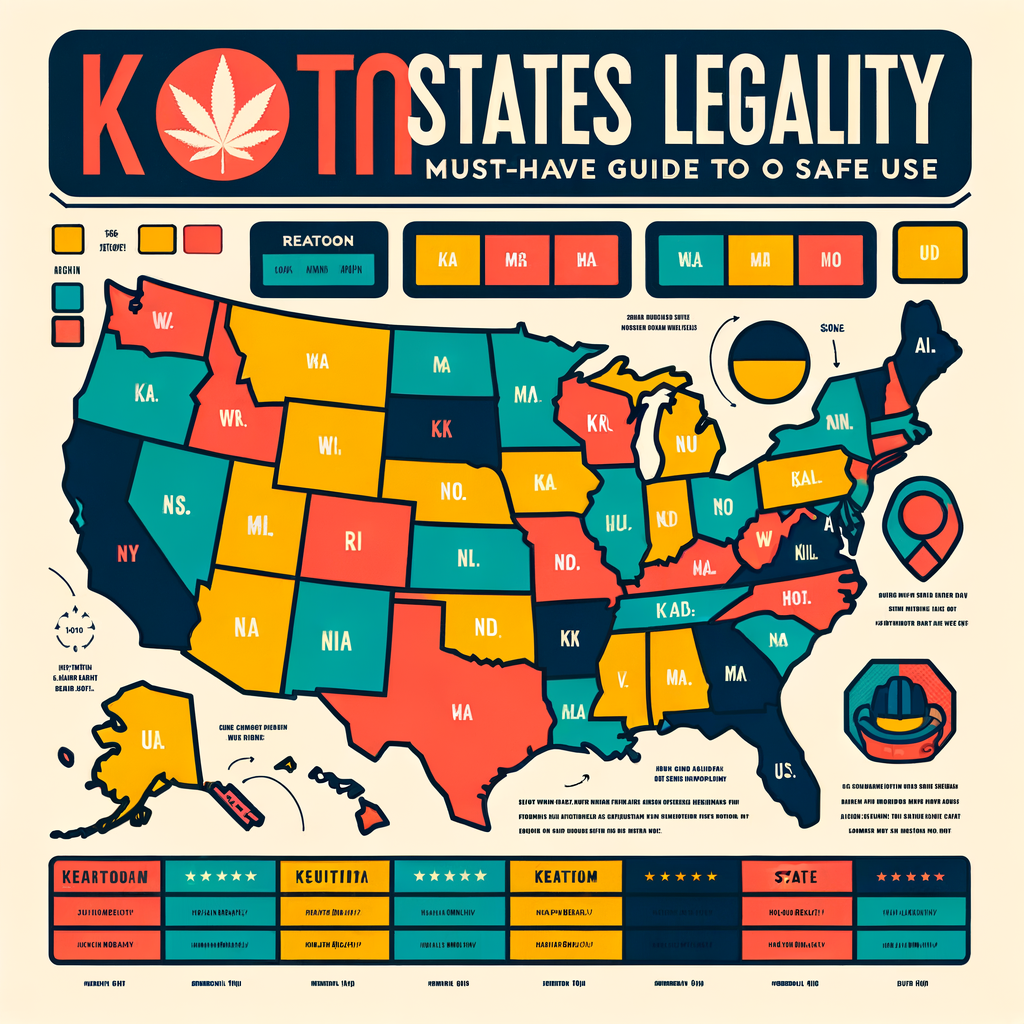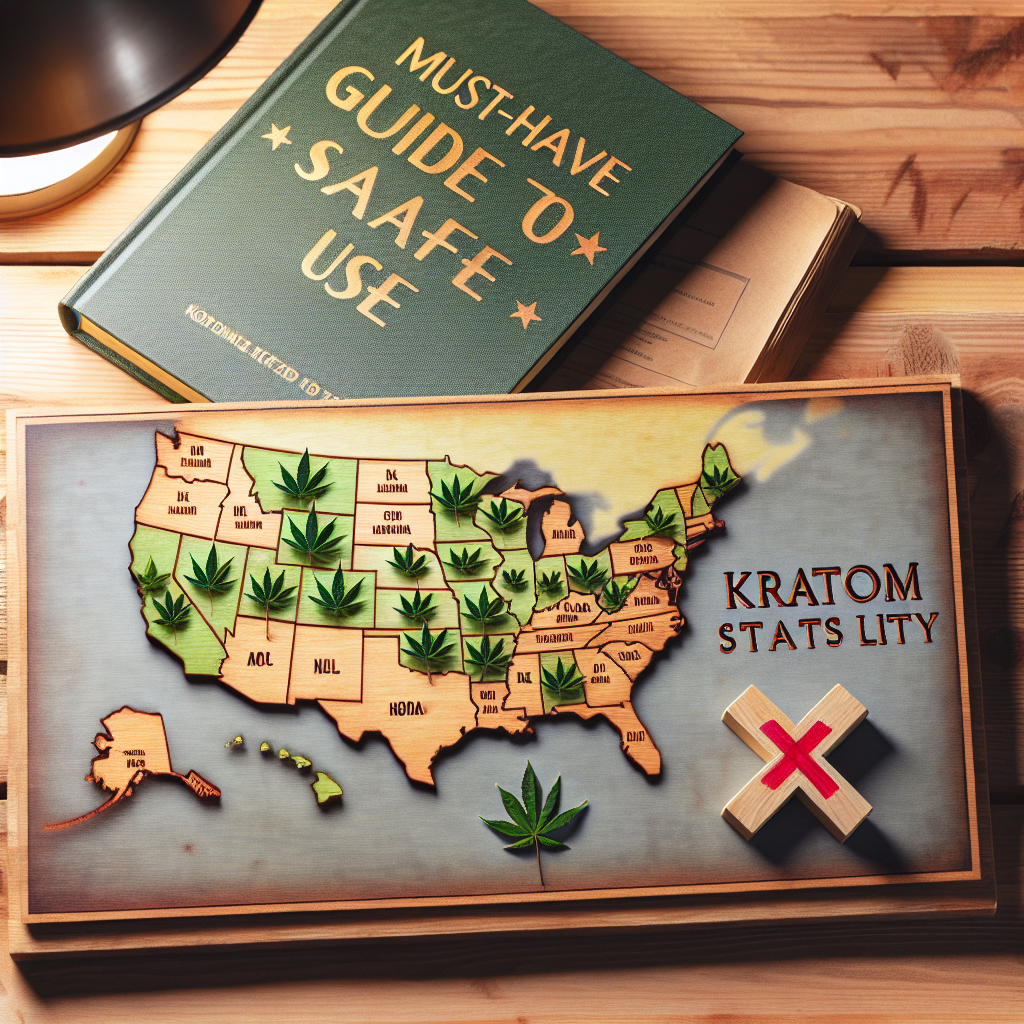
Kratom States Legality: Must-Have Guide to Safe Use
- Understanding Kratom: What You Need to Know
- What Is Kratom?
- The Legal Landscape of Kratom in the U.S.
- States Where Kratom Is Legal
- States Where Kratom Is Banned
- The Nuances of Legal Regulations
- Effects of Kratom: What Users Experience
- Low-Dose Effects
- High-Dose Effects
- The Challenges of Safe Kratom Use
- Start Slow
- Buy from Reputable Sources
- Stay Informed
- The Controversy Around Kratom
- Considering Alternatives
- Making the Right Decision
- FAQ
- References
Understanding Kratom: What You Need to Know

Kratom, a tropical tree native to Southeast Asia, often stirs debate regarding its legality and safety. With its leaves containing compounds that can produce psychoactive effects, many people turn to it for pain relief or as a natural alternative to opioids. However, its legal status varies widely from one state to another in the U.S. This guide will explore kratom’s legality across different states, its potential effects, and tips for safe use.
What Is Kratom?
Kratom (Mitragyna speciosa) belongs to the coffee family. Traditionally, people in countries like Thailand and Indonesia have used its leaves for centuries, often chewing them to boost energy or ease discomfort. Interestingly, kratom can produce different effects depending on dosage. At low doses, users may experience stimulation and increased alertness. Conversely, higher doses may provide pain relief and a sense of calm.
The active compounds in kratom, namely mitragynine and 7-hydroxymitragynine, interact with opioid receptors in the brain. However, these compounds behave differently from traditional opioids. Users often report fewer withdrawal symptoms and a lower risk of addiction. That said, risks do exist, and not everyone reacts to kratom in the same way.
The Legal Landscape of Kratom in the U.S.
Kratom’s legal status stands as a complex issue. Currently, it is not classified as a controlled substance at the federal level. As a result, kratom can be bought legally in many states. Nevertheless, specific states, counties, and cities have enacted their laws regarding kratom. Given the variability, it’s crucial to stay informed.
States Where Kratom Is Legal
Here’s a quick overview of states where kratom is legal without restrictions:
– California
– Florida
– Texas
– Oregon
– Nevada
If you find yourself in any of these states, you can purchase and use kratom relatively freely. However, it’s always a good idea to check the local regulations, as they may differ from state laws.
States Where Kratom Is Banned
Conversely, some states have outright banned kratom. In these locations, possession, sale, or use could lead to legal trouble. Take note of the following states where kratom is banned:
– Alabama
– Arkansas
– Indiana
– Rhode Island
– Vermont
If you’re in one of these states, the risks of legal penalties outweigh the potential benefits of kratom use.
The Nuances of Legal Regulations
In addition to state bans, several local governments have also imposed restrictions. For instance, counties in New York and cities in California may have their own regulations. This added layer of complexity makes keeping up with legal changes essential for anyone considering kratom.
For example, Santa Cruz, California, has specific requirements to ensure kratom is sold safely. Retailers must adhere to age restrictions and labeling requirements. Similarly, Alabama has pending legislation that could affect kratom legality.
Effects of Kratom: What Users Experience
Understanding how kratom might affect you is crucial for safe use. Its effects vary widely based on dosage and individual physiology.
Low-Dose Effects
At low doses, often between 1-5 grams, users report:
– Increased energy
– Enhanced focus
– Euphoria
These stimulating effects can lead just about anyone to explore kratom as an alternative to caffeine or energy drinks.
High-Dose Effects
In contrast, higher doses (5-15 grams) may lead to:
– Pain relief
– Sedation
– Fogginess
Though kratom can alleviate discomfort, it’s important to proceed with caution. Higher doses can lead to uncomfortable side effects, including nausea or dizziness.
The Challenges of Safe Kratom Use
While many advocates claim kratom’s benefits, responsible usage is imperative. Misuse can lead to habit formation, negative health effects, or even legal issues depending on where you live. Here are some practical tips for safe kratom use.
Start Slow
Particularly if you’re new to kratom, starting with a low dose is wise. Monitor how your body reacts before progressively increasing your intake.
Buy from Reputable Sources
Not all kratom vendors are created equal. Take time to research suppliers. Look for those who test their products for quality and purity. Check their customer reviews and ensure they adhere to safety guidelines.
Stay Informed
The kratom landscape is always evolving. Legislative changes, new research, and public health recommendations can emerge at any moment. Stay updated, especially if there are any shifts in the legal status or health guidelines surrounding kratom.
The Controversy Around Kratom
While many users advocate for kratom, it has its detractors. The FDA has raised concerns about its safety and potential for addiction. Critics argue that more research is needed to understand kratom’s long-term impacts fully. Nevertheless, many contend that when used responsibly, kratom holds promise as a therapeutic option.
Considering Alternatives
If you’re unsure about kratom or find yourself in a state where it’s banned, several alternative remedies exist. These might include:
– CBD oil: Useful for anxiety and pain without psychoactive effects.
– Natural herbs: Such as turmeric and ginger, which can also provide anti-inflammatory benefits.
– Acupuncture: A traditional practice that can offer pain relief and promote well-being.
Making the Right Decision
Navigating kratom’s legality and safety can feel daunting. However, understanding its effects, researching legal statuses, and using it responsibly can lead to rewarding experiences. Deciding whether kratom is right for you requires careful consideration.
FAQ
1. Is kratom legal everywhere in the U.S.?
Kratom is not legal in every state. Check your local laws to confirm its legality.
2. Can kratom lead to addiction?
Yes, misuse can lead to dependency. It’s best to use it responsibly and in moderation.
3. What is the best way to take kratom?
Users typically consume it as a tea, powder, or capsule. Choose a method that suits you but always start slow.
4. Are there any side effects?
Common side effects include nausea, dizziness, and constipation. Monitor your intake to manage these effects.
5. What should I do if I experience adverse reactions?
Seek medical assistance if you experience severe side effects. It’s crucial to prioritize your health.
6. How can I find a reputable vendor?
Look for vendors who provide lab testing results and have positive customer reviews. Research can save you from potential harm.
7. Can I mix kratom with other substances?
It’s not recommended to mix kratom with alcohol or other substances as it can amplify side effects.
8. What if I have underlying health conditions?
Consult a healthcare provider before using kratom, especially if you have pre-existing conditions or are on medication.
9. What is the future of kratom legislation?
Legislation continues to evolve. Keeping an eye on local laws is advisable for current information.
10. Are there ongoing studies about kratom?
Yes, ongoing research aims to provide more insight into kratom’s safety and efficacy. Stay updated on scientific findings.
References
1. U.S. Drug Enforcement Administration. (DEA). Kratom.
2. National Institute on Drug Abuse. Kratom.
3. American Kratom Association. State and Federal Legislation.
4. Food and Drug Administration. (FDA). Warning about Kratom.
5. National Center for Complementary and Integrative Health. Herbal Medicine: Kratom.


